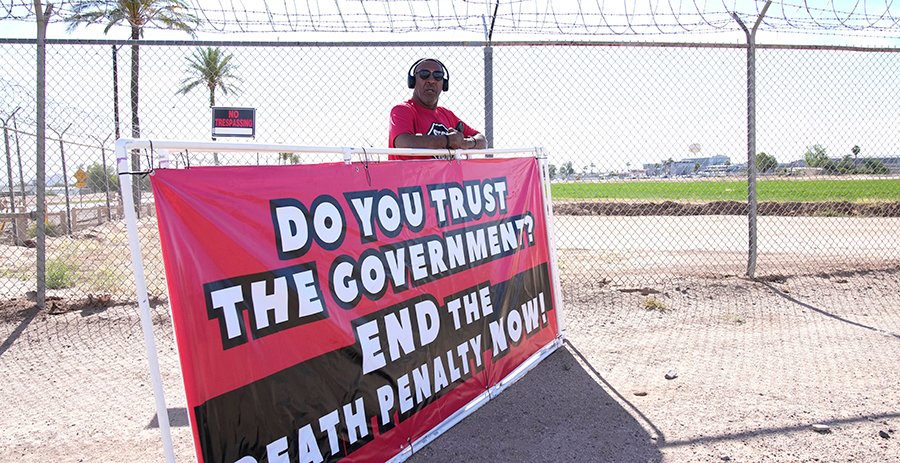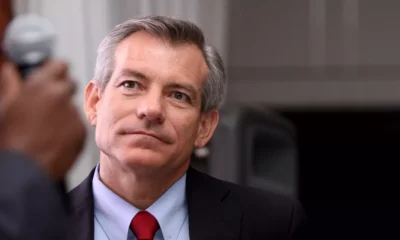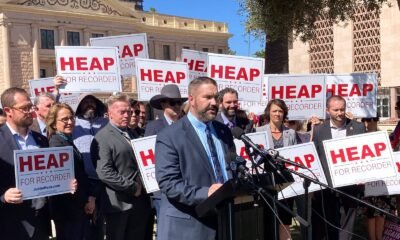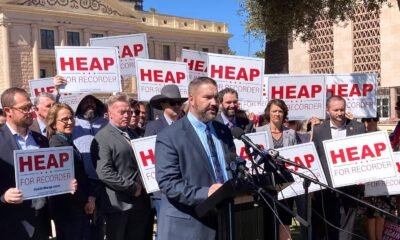Aaron Gunches
County Attorney Mitchell Halts Legal Battle to Pursue Death Warrants

Maricopa County Attorney Rachel Mitchell has decided to withdraw her appeal to the Supreme Court regarding her authority to seek an execution warrant, a right also claimed by Attorney General Kris Mayes. Despite this withdrawal, the legal debate remains unresolved, merely postponed for future consideration.
Mitchell emphasized to Capitol Media Services that her withdrawal should not be seen as a concession. “We’re absolutely not conceding,” she stated.
In her prior legal filings, Mitchell highlighted her intention to push for an execution order for Aaron Gunches. This request became pertinent as Mayes delayed action on the execution, awaiting a report from a special commissioner appointed by Governor Katie Hobbs to assess the execution process’s integrity. Gunches had exhausted all legal appeals, increasing the urgency of the situation.
Last month, Governor Hobbs dismissed the special commissioner, expressing confidence in the Department of Corrections, which stated it could carry out executions without further complications. Subsequently, Mayes filed the necessary paperwork with the Supreme Court to resume Gunches’ execution process, potentially scheduled for early next year.
Mitchell asserted that this development aligned with her initial objective. “We’re simply saying our object has been met,” she remarked, noting that Mayes is now taking the steps to secure a warrant. However, she maintained that this did not imply Mayes possessed exclusive authority in these matters.
With Mitchell’s claim now withdrawn, the Supreme Court will not need to address the contentious issue of jurisdiction. Earlier this year, Mayes affirmed her position, asserting she holds the exclusive right to request execution warrants as the state’s chief legal officer.
While Mitchell did not contest Mayes’ overall authority, she argued that the law specifies the Supreme Court must issue an execution warrant if “the state” indicates no remaining post-conviction proceedings. This definition of “the state,” as per Mitchell, encompasses all prosecuting entities.
Mitchell also pointed out her responsibility under the Victims’ Bill of Rights to advocate for the needs of victims and ensure a prompt conclusion to the legal process following a conviction. Dropping her challenge, she claimed, was also motivated by a desire to avoid further delays in executing Gunches, which would impede the rights of the victim’s survivors.
Looking ahead, there are currently 111 individuals on death row in Arizona, 25 of whom, including Gunches, are without pending appeals. Mitchell expressed hope that there would be no need for future disputes with Mayes if she continues fulfilling her responsibilities.
Mayes’ spokesperson acknowledged that the current issue is moot concerning Gunches but mentioned that the attorney general would not concede any future authority disputes. Support for Mayes came from notable figures, including former Attorney General Terry Goddard and ex-county attorneys Rick Romley and Barbara LaWall, who filed a brief opposing Mitchell’s claims, citing historical precedent for the Attorney General’s role in execution matters.
In response, Mitchell dismissed their claims as irrelevant. “The bottom line is that Romley and Barbara never faced that issue because they never had an attorney general who was refusing to do her duty,” she concluded, underscoring the unique nature of the current scenario.


















